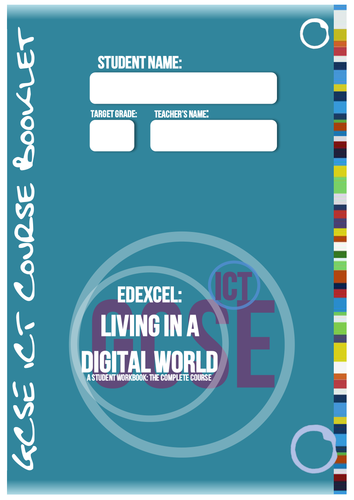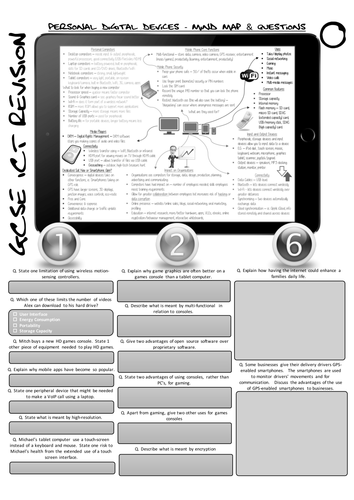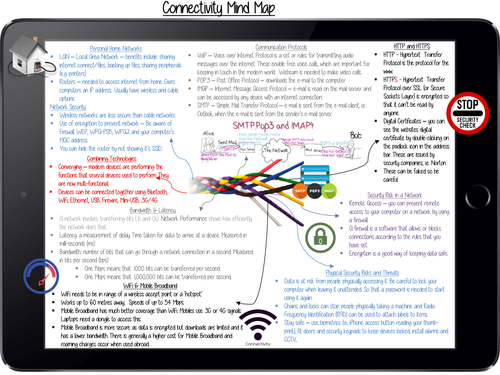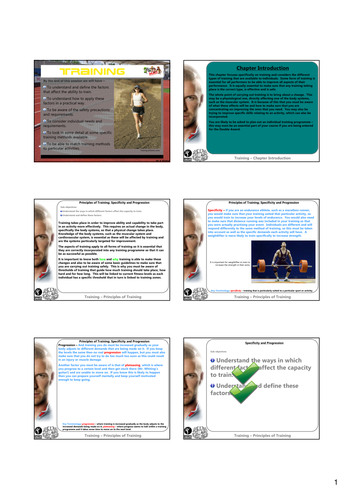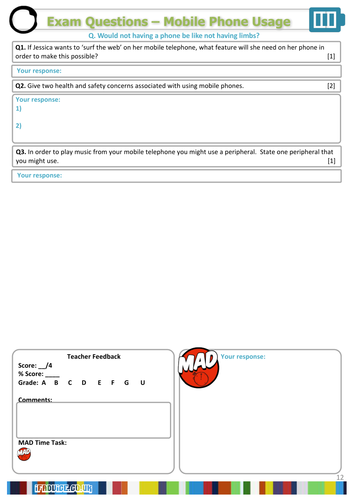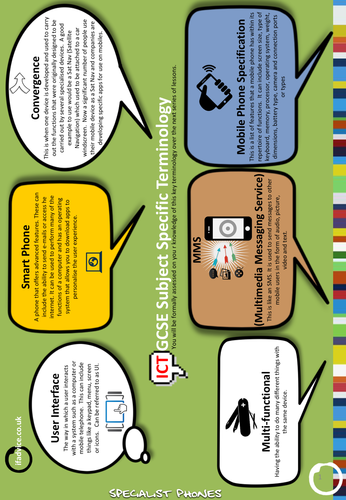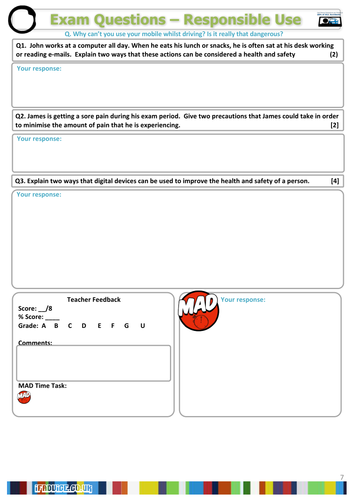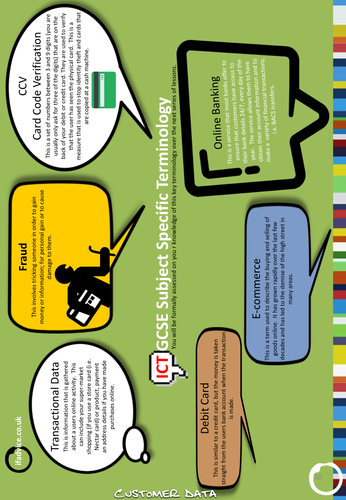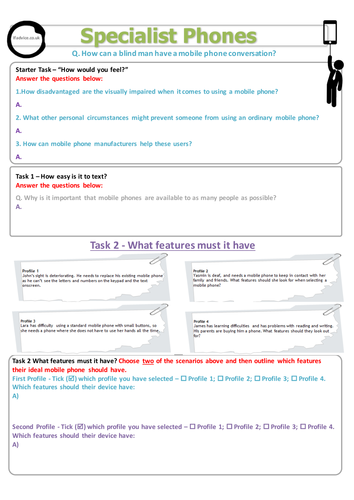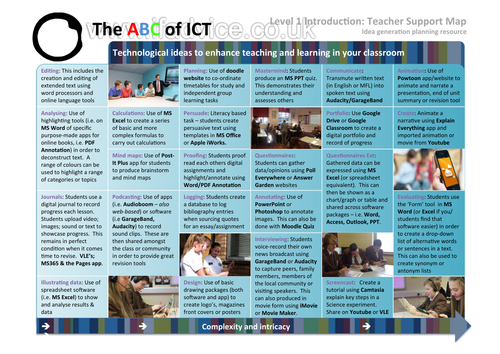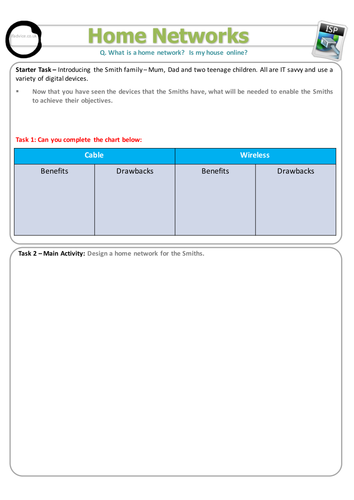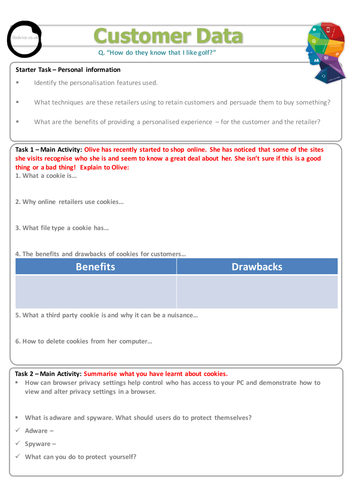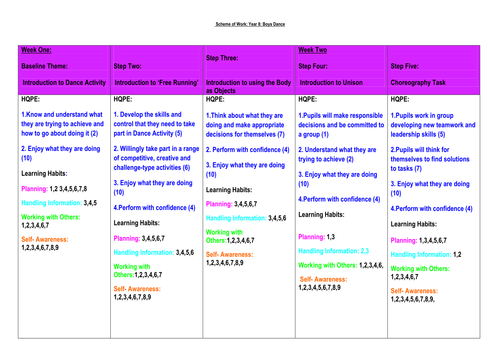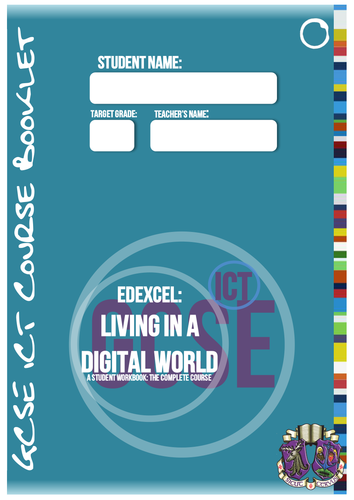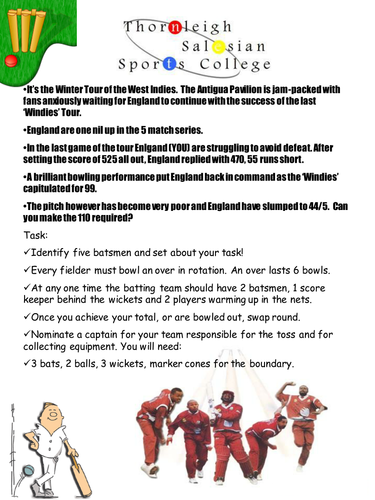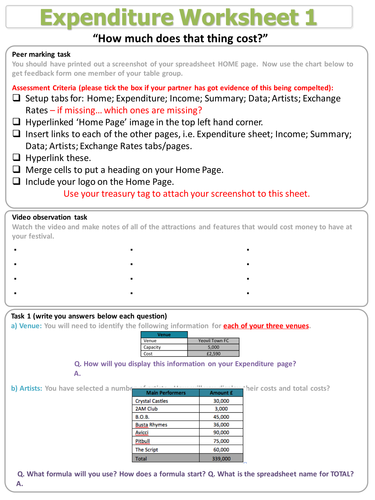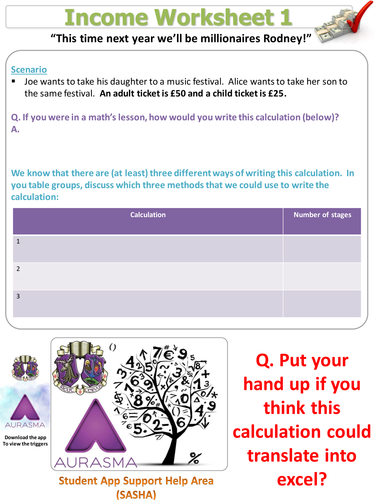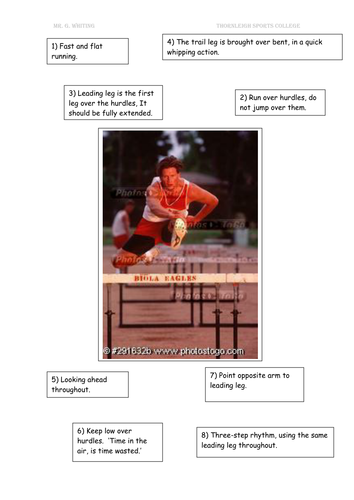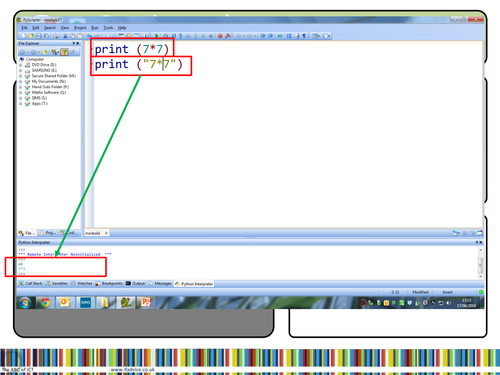
172Uploads
47k+Views
3k+Downloads

GCSE Revision - Training
GCSE Revision - Training
These notes are to be used in conjunction with the official revision guide. I get my students to put a line through the sections/sentences that they are most confident with so that they can use them as flash cards.

GCSE Practical Spreadsheet
GCSE Practical Spreadsheet for determining students top sport/marks/roles.

GCSE ICT Key Terminology Poster 1
GCSE ICT Key Terminology Poster 1 - used around the classroom to help students learn the key terminology related to each topic covered.

GCSE ICT Key Terminology Poster 10
GCSE ICT Key Terminology Poster 10 - used around the classroom to help students learn the key terminology related to each topic covered.

Edexcel GCSE ICT Teaching Block One Worksheets
These worksheets cover the topics: specialist phones; connections; mobile phone usage (x2); responsible use; security; business phones and a summative lesson.
I can supply accompanying PowerPoints on request free of charge, but I don't want to put these up here as I have worked on producing them with my colleague.
These worksheets can be used as teaching and learning resources of as revision activities with individuals, small and large groups - targeting misconceptions through appropriate intervention.

Planning to use ICT in your lesson?
Use this resource to inspire you to incorporate ICT in your lessons. Each suggestion increases in complexity form left to right, using software from the modern school environment.
Plenty of support material on my website to help you once you have identified the method that you want to incorporate into your planning.
This is also an excellent tool to use with NQT, RQT or to inspire long-standing departments and colleagues to improve the quality and modernity of their planning.

Edexcel GCSE ICT Teaching Block Three Worksheets
These worksheets cover the topics: home networks and a summary section to 'mop up' any missing topics from the specification.
I can supply accompanying PowerPoints on request free of charge, but I don't want to put these up here as I have worked on producing them with my colleague.
These worksheets can be used as teaching and learning resources of as revision activities with individuals, small and large groups - targeting misconceptions through appropriate intervention.

Edexcel GCSE ICT Teaching Block Two Worksheets
These worksheets cover the topics: customer data; data protection; online auctions (two worksheets for range of abilities); online banking; online shopping; risk and protection.
I can supply accompanying PowerPoints on request free of charge, but I don't want to put these up here as I have worked on producing them with my colleague.
These worksheets can be used as teaching and learning resources of as revision activities with individuals, small and large groups - targeting misconceptions through appropriate intervention.

GCSE ICT Chunking Revision Prompts
I have used 'chunking' as a revision method for a long period of time in order to get students to 'learn and remember' the key terminology that needs to be recalled during examinations. Chunking is the process of breaking up large pieces of information in to smaller chunks and I use it over a short period of time, to get students to concentrate on the recall of keywords right before their examination periods.
The attachment is used over the last two weeks of examination preparation - students are given one page to learn and recall over a two day period. I then used diagnostic tools to test the students ability to recall the information given a variety of different stimuli questions.
Used in conjunction with the mind maps (found on TES), these compact the information that students struggle to retain from the mind map framework.

Edexcel GCSE ICT Theory Mind Maps and Question Bank
These resources are summary mind maps that can be used in isolation at the end of a topic or as a revision tool at the end of a course. They can be used appropriately as formative or summative activities.
Each mind map has associated past paper questions and questions taken from, or inspired by the course workbooks and revision guide. I have confirmed with Pearson that i have permission to share these resources with other teachers and students.
The topics include: Personal Digital Devices, Connectivity, Operating Online, Online Communities, Online Goods and Services & Issues. And questions are in three colour columns (1 mark - blue; 2 marks - orange; 3/6 marks - purple).
I tend to use these resources for group work tasks where students get a series of points for the methods that they have used to work out the answers. The resources are printed/designed for A3 and students get 3x the marks for knowing the answers without the use of mind-map or research. 2x the marks for using the mind maps and 1x the marks for utilising online research methods to work out the answer. Going through the solutions is done via the medium or a walking-talking exam. At the end of the session, I photograph and e-mail a copy of the completed questions to the class and individuals take home their own blank copy of the activity sheet to work on and target their own misconception or gaps in knowledge.
I have also added a black and white version in order to save on printing costs for colleagues.
UPDATE: Amended questions for Online Goods and Services 2.
UPDATE 2: Now included is a simple spreadsheet to document team progress.

Year 7 or 8 Boys Dance Scheme of Work/Scheme of Learning
Year 7 or 8 Boys Dance Scheme of Work/Scheme of Learning

Edexcel GCSE ICT Course Booklet v1.0
This course booklet contains all of the:
- worksheets
- chunking/terminology activities for each lesson
- homework's
- associated mind map and revision activities
I issue each student that I teach with this booklet and we work through it with the associated PowerPoints.
The booklet starts with a specification checklist and a PLC activity for each unit of work.
Each lesson starts with the associated chunking/terminology and then features lesson content and an associated home task (past paper of exam-style questions). I work through these one lesson at a time and test the terminology/chunking knowledge in the next lesson (usually a practical or CAB lesson).
At the completion of each teaching block, student create their own mind map.
At the end of the course are some revision activities and high quality mind maps.
This is the complete document for teaching the Edexcel GCSE ICT theory components.

Cricket Scenario Cards 1
Cricket Scenario Cards
Game based lesson - split the group into 2/3 smaller groups and use these to deliver a whole-part-whole activity

Cricket Scenario Cards 2
Cricket Scenario Cards
Game based lesson - split the group into 2/3 smaller groups and use these to deliver a whole-part-whole activity

Spreadsheet Lesson 1
Spreadsheet Lesson 1 (Follow ‘ThornleighSalesianCollege’ to access Aurasma
This is a series of worksheets that I have used teaching ICT and Computer Science throughout KS3 and GCSE ICT.
Please note that the ‘follow’ is the account that we use within school - every department uses the same account, therefore the students only have to ‘follow’ one channel and the triggers will automatically be picked up.

Spreadsheet Lesson 3
Spreadsheet Lesson 3 (Follow ‘ThornleighSalesianCollege’ to access Aurasma
This is a series of worksheets that I have used teaching ICT and Computer Science throughout KS3 and GCSE ICT.
This worksheet shows how Aurasma can ‘do the teaching for you’. All I do is produce the video and students work through it at their own pace.
Please note that the ‘follow’ is the account that we use within school - every department uses the same account, therefore the students only have to ‘follow’ one channel and the triggers will automatically be picked up.

Python Programming Lesson 4 (Year 7 or younger) - BIDMAS Mathematical Operators
Python Programming Lesson 4 (Year 7 or younger) - BIDMAS Mathematical Operators
A development from lesson 3 based on BIDMAS Operators. This introduces them along with the use of double brackets for multiple calculations (to determine an logical order, as opposed to the BIDMAS order) with linked examples and exercises for each.. This is the fourth lesson that is progressive, following a scheme of learning that will be published as an overview with the final lesson of the unit.
Lessons can purchased individually or as a package. Lesson duration approximately 50-60 minutes.
This lesson also includes links to a personalised Kahoot diagnostic assessment (free sign-up).

